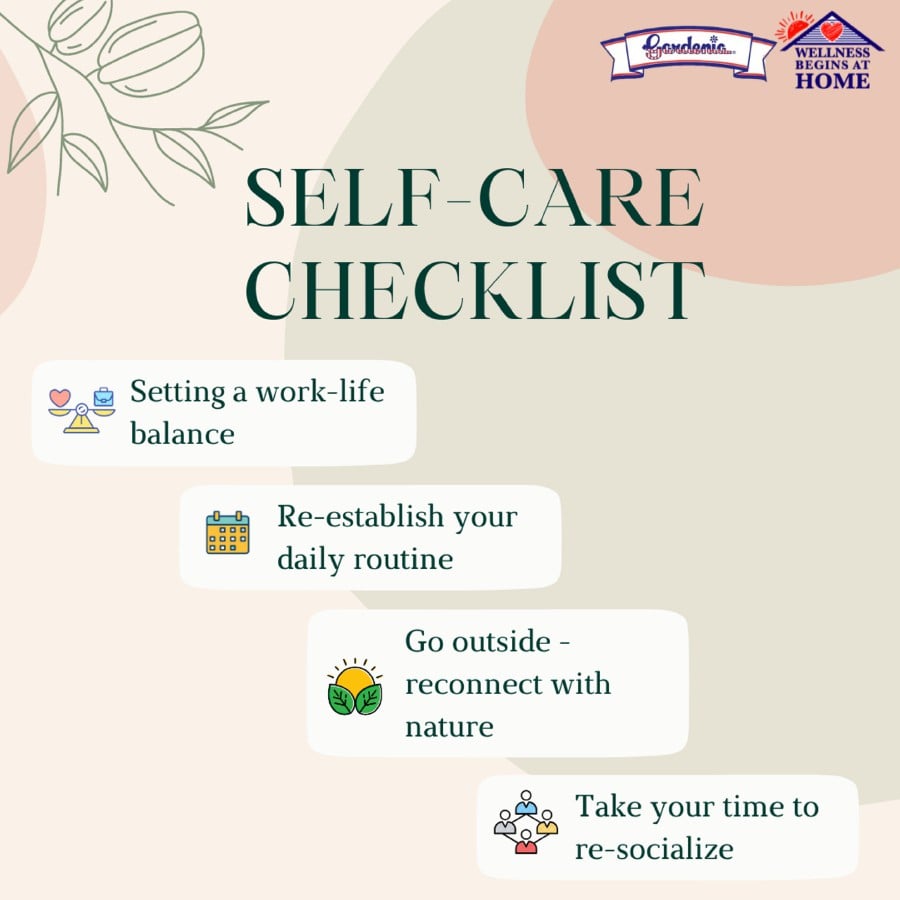AFTER an emotionally charged year and intensive vaccination rollout, the question on many people's minds is; how different will things be?
Many questions and concerns about life remain as we grapple with the intense changes brought on by the pandemic.
Close to 70 per cent of respondents from the Gardenia "Wellness Begins at Home" survey, conducted in collaboration with Cilisos Media, revealed that the Movement Control Order (MCO) had taken a toll on their mental health.
More alarming than this figure is the reality that its effects are still felt by many long after the movement restrictions have been lifted.
As exciting as it sounds to resume life with the easing of restrictions, we should reflect on the role of self-care before easing back into our routines.
Self-care literally means taking care of yourself. Commonly associated with allocating "rest and relaxation" time to alleviate the build-up of stress resulting from work or daily routines, self-care also entails building some good yet arguably challenging habits like eating healthily, exercising regularly, and setting boundaries.
According to the Gardenia survey, Malaysians did not fare so well in balancing work and life during the various Movement Control Orders.
Here are the findings:
* Less than 10 per cent % of respondents ate a well-balanced diet, with over 60 per cent eating meals whenever they felt like it.
* Before the MCO, 44.7 per cent said they worked out at least once a week. However, during the first MCO, this number dropped to 40.5 per cent.
* With regards to work-life balance, 20 per cent said they worked more than normal during the MCO.
HOW TO START?
Take time to listen to what your body, mind and soul needs. Self-care should be as natural as eating or breathing, and not merely a luxury.
Here are some tips:
1.Set a balance
The lines between work and personal life were often blurred during the period we were cooped up at home. During this time, back-to-back virtual meetings going on late into the evening were a concerning trend. Working parents had to juggle work commitments, cooking, being caregivers, tutors to school-going children and play housekeeper, simultaneously
Through the survey, 27 per cent of respondents said that they had no work-life balance during the pandemic while 20 per cent said they carried extra workloads.
This is a cause for concern, as we all need to set healthy boundaries between work and life.
2. Re-establish your routine
Have you ever experienced a weekend so jam packed with chores and activities with family and friends, that on Sunday evening you feel completely wiped out?
Establishing a routine may sound boring, but it serves as a general guide to ensure that you have reasonable time for all your plans and avoid being overwhelmed. Remember to schedule some "me time" into your routine.
3. Go outside
Most of us spent a significant amount of time looking at screens during the pandemic.
Make time to soak up some sun. Reconnect with nature. Take up sports like hiking, cycling or rock-climbing and remember to continue observing good hygiene habits by observing the standard operating procedures.
4. Take it slow
The pandemic and MCO has had a traumatic effect on many. Some are still anxious at the thought of rejoining society and going about a normal day. Some of us may have even forgotten how to socialise. Take it slow and check in with each other from time-to-time and seek professional help, if necessary.
Perhaps, before jumping into the deep end, start by reconnecting with family and loved ones, especially after being separated for long periods.





